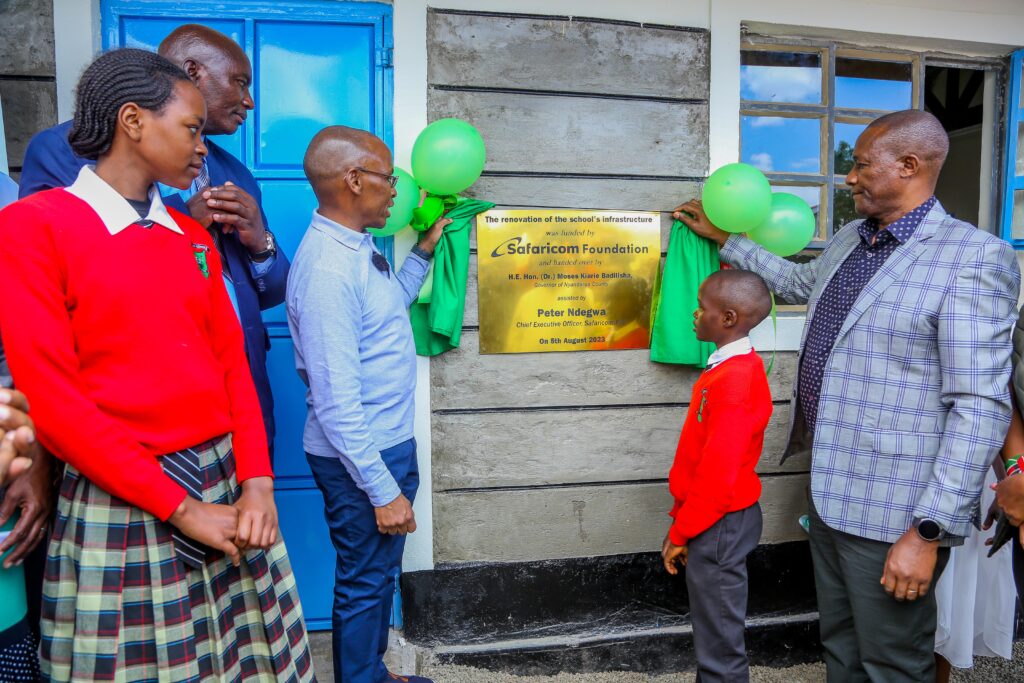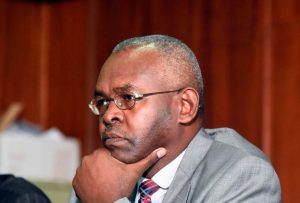
The projects in the areas of Education, Health, and Environment are set to transform over 5000 lives.
Safaricom (NSE: SCOM) and its foundations, the M-PESA Foundation and Safaricom Foundation,have invested over KES 50 million in Education, Health, and Environment projects in Nyandarua and Laikipia Counties.
 The projects are expected to benefit 5000 people and 100 schools within the two counties.
The projects are expected to benefit 5000 people and 100 schools within the two counties.
Learners at Mumbi Primary School in Ol Kalou, Nyandarua County, will no longer learn under dilapidated infrastructure after the M-PESA Foundation committed KES 34 million towards the construction of various classrooms, latrines, an administration block, a school gate, a library and an ICT centre with primary and secondary school’s sections, as well as a multipurpose hall and kitchen.
Still in Nyandarua County, Safaricom Foundation handed over renovated school infrastructure worth KES 16 million at Ngai Ndeithia Primary School to uplift the learning conditions.
 Additionally, more than 3000 residents benefitted from a free medical camp held at the same school, funded by M-PESA Foundation.
Additionally, more than 3000 residents benefitted from a free medical camp held at the same school, funded by M-PESA Foundation.
“At Safaricom, we believe in the importance of investing in the communities around us, and we do this as a brand and through the Safaricom and M-PESA Foundations.
Education is one of the areas we are keen to make an impact, and by investing in these schools in Nyandarua and Laikipia Counties, we are transforming lives and enhancing the learning outcomes of hundreds of learners,” said Peter Ndegwa, Chief Executive Officer, Safaricom PLC.
Under environment, Safaricom established a school regreening programme where the company will provide 10,000 fruit trees to 100 schools across Laikipia and Nyandarua Counties.
 The program is in partnership with Kenya Forest Service, the Ministry of Education, and the Ministry of Environment,Climate Change and Forestry. Safaricom also planted 5000 indigenous trees at Nyahururu Golf Club to support its reafforestation initiatives.
The program is in partnership with Kenya Forest Service, the Ministry of Education, and the Ministry of Environment,Climate Change and Forestry. Safaricom also planted 5000 indigenous trees at Nyahururu Golf Club to support its reafforestation initiatives.
“This tree planting exercise is part of our commitment to plant five million trees by 2025 and to be a net zero organisation by 2050.
The school regreening programme on the other hand will support schools in revenue regeneration, improve food security and ecosystem services,” added Mr. Ndegwa.









